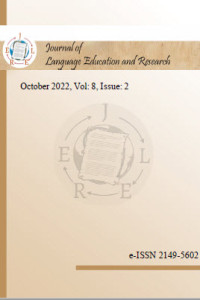The Complexity of Pragmatic Competence: A Comparative Analysis of Native English Speakers’ and Turkish ESL Students’ Advice-giving Strategies
The Complexity of Pragmatic Competence: A Comparative Analysis of Native English Speakers’ and Turkish ESL Students’ Advice-giving Strategies
Author(s): Tuba YılmazSubject(s): Foreign languages learning, Applied Linguistics, Pragmatics, Comparative Linguistics, Turkic languages
Published by: T.C. MEHMET AKİF ERSOY ÜNİVERSİTESİ EĞİTİM FAKÜLTESİ
Keywords: Advice-giving; pragmatic competence; native English speakers; English as a second language; speakers; politeness;
Summary/Abstract: Studies revealed that English as a second language (ESL) speakers and native English speakers (NES) often used different strategies to offer advice in English. Since these differences can cause cross-cultural misunderstandings and misattribution of intent between ESL speakers and NES, it is important to identify them. For this purpose, this study analyzed the structural and pragmatic differences between the advice-giving strategies of NES and Turkish ESL speakers. 18 NES and 20 Turkish ESL students were recruited and asked to offer written advice to the given cases in a WCDT questionnaire. The analysis revealed that while the NES students tended to use the modal ‘would’, the pronoun ‘I’, and some other politeness features in their advice, Turkish ESL speakers tended to use the modal ‘should’ and the pronoun ‘you’ more. These results indicated that Turkish ESL speakers employed their pragmatic competence in Turkish to construct their discourses in English.
Journal: Dil Eğitimi ve Araştırmaları Dergisi
- Issue Year: 8/2022
- Issue No: 2
- Page Range: 305-324
- Page Count: 20
- Language: English

